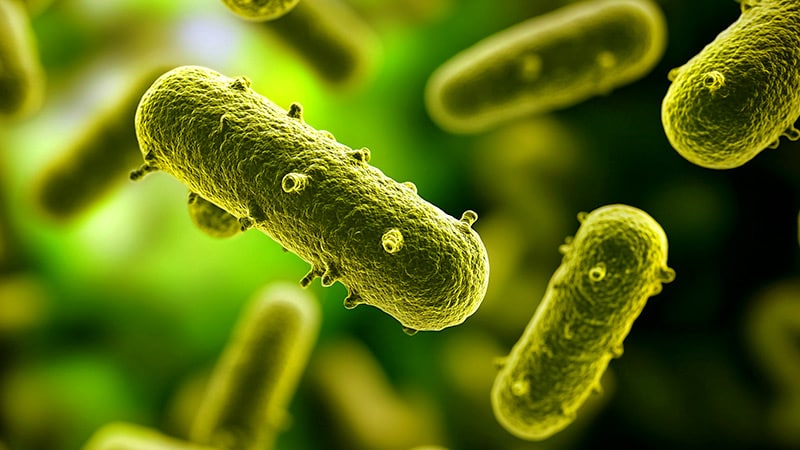As a primary care doctor, you’re often the first clinician that patients trust to discuss cardiac issues. Not only can you assess cardiac symptoms, order diagnostic tests, and refer your patients to a cardiologist but also you can use this front-line role to discuss other ways to treat cardiac concerns.
During your consultations, you will likely explain the role of healthier eating habits to boost cardiovascular health. If your conversations include using probiotics in a patient’s diet there are specific things patients should know about probiotics and the impact on cardiovascular health.
Do Probiotics Help Lower Cholesterol or Improve Circulatory Health?
Probiotics may help the heart in ways we’re just beginning to understand, said Maria Carolina Delgado-Lelievre, MD, assistant professor of medicine at University of Miami Miller School of Medicine, Miami.
Clinical evidence demonstrates that certain strains of probiotics can reduce risk factors for heart disease, like high blood pressure, high cholesterol, and inflammation. For example, Delgado-Lelievre said, Lactobacillus and Bifidobacterium strains have been shown to reduce inflammatory markers, support better insulin sensitivity, and even help lower low-density lipoprotein (bad) cholesterol and triglycerides in some human and animal studies. “One potential mechanism is through bile salt hydrolase activity — this helps break down bile in a way that reduces how much cholesterol is absorbed into the blood,” she said.
In some cases, probiotics have also been linked to better blood flow, by helping remove cholesterol plaques in the arteries, she said.
Best Ways for Patients to Consume Probiotics
Delgado-Lelievre said that traditional and everyday foods are rich in natural probiotics. These include:
- Yogurt and kefir (fermented milk drinks)
- Cheese (certain aged varieties)
- Miso, tempeh, natto, idli, and dosa (fermented soy or grain-based foods)
- Sauerkraut, kimchi, pickles (naturally fermented)
An effective approach could be to ease a patient to probiotics.
“I always recommend yogurt as a food to eat daily because it has protein and probiotics, mainly when people complain of gastrointestinal issues you can start by trying probiotics to see if they help,” said Sandra Arévalo, MPH, RDN, CDN, CDCES, FAND, a registered dietitian nutritionist and spokesperson for the Academy of Nutrition and Dietetics, who is director of Community Health and Wellness and administrative director of the Jacob’s Family Pride Wellness Center at Montefiore Nyack Hospital in Nyack, New York.
Should You Recommend a Probiotic Supplement?
Probiotic supplements can be a good option, especially if someone doesn’t eat many fermented foods. “But not all products are equally effective, and not all strains work the same way,” cautioned Delgado-Lelievre. Because some probiotics are more geared toward gut health, while others may support heart or metabolic function, it’s important to choose wisely, she said.
She recommends patients discuss taking a probiotic supplement with a healthcare provider before starting any supplement, particularly if they have existing conditions like heart disease, diabetes, or are on medications. “A tailored recommendation is often safer and more effective,” she said.
Who Shouldn’t Take or Eat Foods With Probiotics?
In certain cases, patients should avoid them. While probiotics are generally safe for healthy people, caution is needed in those with weakened immune systems, such as patients undergoing chemotherapy, transplant recipients, or low birth weight infants. “In rare cases, even nonpathogenic bacteria can lead to infections in vulnerable individuals,” Delgado-Lelievre said. Again, patients should speak to healthcare providers before starting probiotic supplements or even high-dose fermented foods.
It’s widely known how probiotics can help regulate bowel movements, help reduce gas and inflammation, and reduce bloating, said Antonette Hardie, RN, a registered dietitian at Ohio State University Wexner Medical Center in Columbus, Ohio. But she cautioned, although “highly unlikely,” there’s always a thing as too much of anything, including probiotics. “Too many probiotics can cause diarrhea, gas, and bloating while your body adjusts and these likely resolve within a few days or weeks,” Hardie said.
Manage Expectations for Patients
Although beneficial, explain to your patients that probiotics “are not a magic pill, but they are a promising ally in cardiovascular health,” Delgado-Lelievre said. “Through their impact on inflammation, blood pressure, cholesterol, and insulin sensitivity, they may help reduce risk factors for heart disease.”
So whether through diet or supplements, she said the key is to help your patients make informed choices as probiotics are part of a broader lifestyle approach that puts prevention at the heart of care.
Source link : https://www.medscape.com/viewarticle/are-probiotics-helpful-treating-cardiovascular-issues-2025a1000le1?src=rss
Author :
Publish date : 2025-08-13 06:31:00
Copyright for syndicated content belongs to the linked Source.
